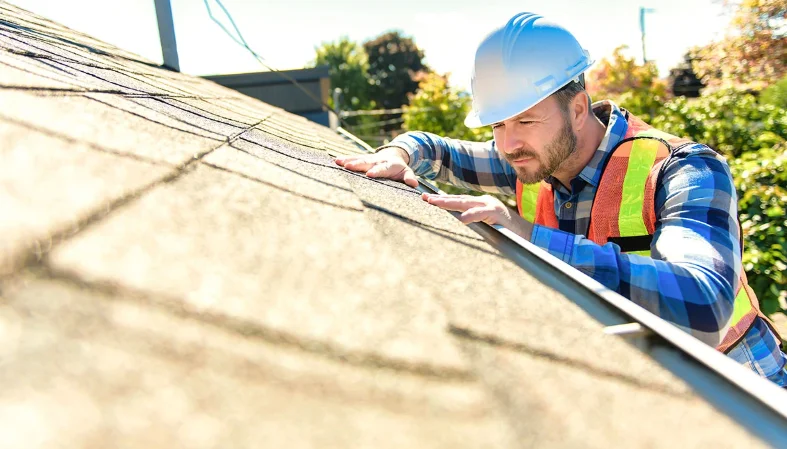Installing an asphalt roof is a significant decision that impacts a home’s appearance and functionality. Asphalt shingles are among the most popular roofing materials due to their cost-effectiveness, versatility, and durability. However, homeowners must evaluate several critical factors before committing to an asphalt roof installation. These include the climate, cost, materials, lifespan, installation process, and maintenance requirements. Properly understanding these aspects ensures the investment provides long-term value and avoids unnecessary repairs. We will explore the key considerations to help you make a well-informed decision regarding your asphalt roofing project in Braham.
Understanding the Impact of Climate on Asphalt Roofs
Climate plays a crucial role in determining the performance and longevity of an asphalt roof. Asphalt shingles perform well in many environments, but extreme weather conditions can affect their durability. In hot climates, prolonged exposure to intense sunlight can cause shingles to deteriorate faster, leading to cracking and curling. Conversely, asphalt roofs may experience issues such as ice dam formation and thermal cracking in colder regions due to fluctuating temperatures. Homeowners in areas prone to heavy rainfall or snowfall should also ensure their asphalt shingles have sufficient water resistance to prevent leaks and moisture damage. Choosing shingles with proper ratings for wind, fire, and algae resistance can also improve their ability to withstand local weather patterns. Investing in reflective or cool roof technology can help mitigate heat absorption in warmer climates, improving energy efficiency. By evaluating the specific climate needs of your area, you can select asphalt shingles that will provide optimal performance and longevity.
Evaluating the Costs and Budget for Installation
Cost is often a primary consideration when planning an asphalt roof installation. While asphalt shingles are generally more affordable than other roofing materials, the total cost can vary depending on factors such as the size of the roof, material quality, and labor charges. Obtaining multiple estimates from roofing contractors to compare prices and ensure the project aligns with your budget is essential. Homeowners should also consider additional expenses such as roof decking repairs, underlayment, ventilation systems, and waste disposal fees. Investing in high-quality shingles may involve a higher initial cost but can save money in the long run by reducing the need for frequent repairs or replacements. Additionally, understanding the warranties offered with asphalt shingles is important, as they provide financial protection in case of material defects or premature failure. By carefully planning your budget and accounting for all potential costs, you can make an informed choice that balances affordability and long-term value.
Choosing the Right Type and Style of Asphalt Shingles
Asphalt shingles come in various types and styles, each with unique benefits and aesthetic appeal. The most common options include three-tab shingles, architectural shingles, and luxury shingles. Three-tab shingles are lightweight, budget-friendly, and provide a traditional, flat appearance. Architectural shingles, also known as dimensional shingles, are thicker, more durable, and offer a multi-dimensional look that enhances curb appeal. Luxury shingles are premium options that replicate the appearance of materials like slate or wood, providing a high-end aesthetic while maintaining the benefits of asphalt. Homeowners should consider their home’s architectural style and desired visual appeal when selecting shingle types.
Additionally, choosing shingles in complementary colors and textures can enhance the property’s overall look. Beyond aesthetics, performance factors such as wind resistance, impact resistance, and algae protection must also be considered. Homeowners can achieve visual appeal and functional durability by selecting the right type and style of asphalt shingles.
Understanding the Lifespan and Durability of Asphalt Roofs
The lifespan of an asphalt roof depends on the quality of materials, installation, and ongoing maintenance. Standard three-tab shingles typically last 15 to 20 years, while architectural and luxury shingles can last up to 30 years. Proper installation is critical to ensuring the longevity of asphalt roofs. Poor workmanship can result in premature leaks, missing shingles, or poor ventilation, which reduces the roof’s lifespan. Homeowners should work with experienced contractors who follow industry standards for installation to maximize the roof’s durability. Routine maintenance also plays a significant role in extending the life of asphalt shingles. Tasks such as cleaning gutters, removing debris, inspecting for damage, and addressing minor repairs promptly can prevent larger issues and costly replacements. Additionally, selecting shingles with enhanced features like UV protection and algae resistance can improve durability. By understanding these factors, homeowners can ensure their asphalt roof provides reliable, long-term protection.
Installing an asphalt roof requires careful consideration of climate, cost, materials, installation, ventilation, and maintenance factors. Asphalt shingles offer a versatile and cost-effective solution, but their performance and longevity depend on proper planning and execution. Understanding the impact of local weather conditions, selecting the appropriate type of shingles, and ensuring quality installation are key to achieving a durable and visually appealing roof. Additionally, incorporating adequate ventilation, preparing for installation, and committing to regular maintenance can help homeowners maximize their investment. By considering these factors, homeowners can make informed decisions that result in a functional and long-lasting asphalt roof.

Shannon Reyes is a seasoned writer with a knack for crafting engaging blogs on a variety of service industries, including plumbing, cleansing, moving, pest control, and roofing. With a keen eye for detail and a passion for helping readers navigate complex topics, Shannon brings her expertise to life through informative and accessible content.











